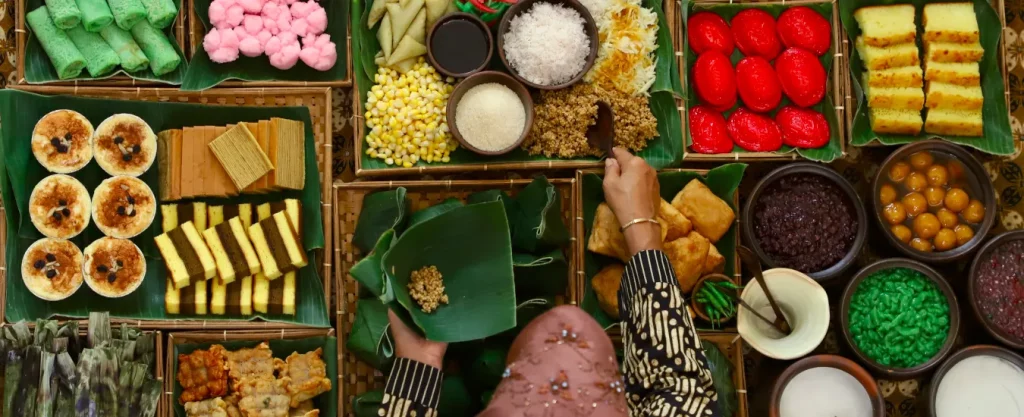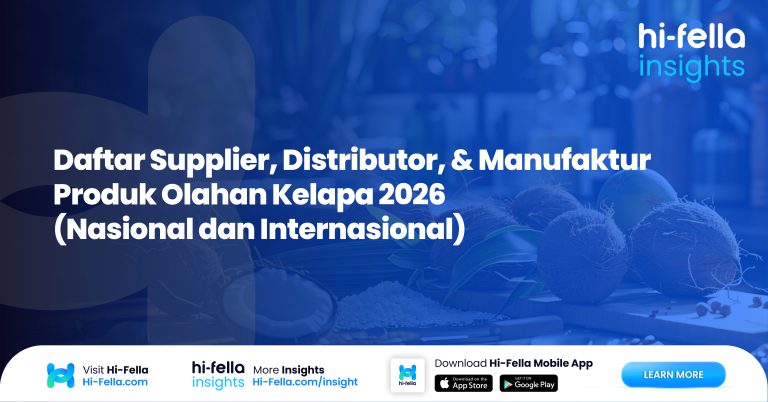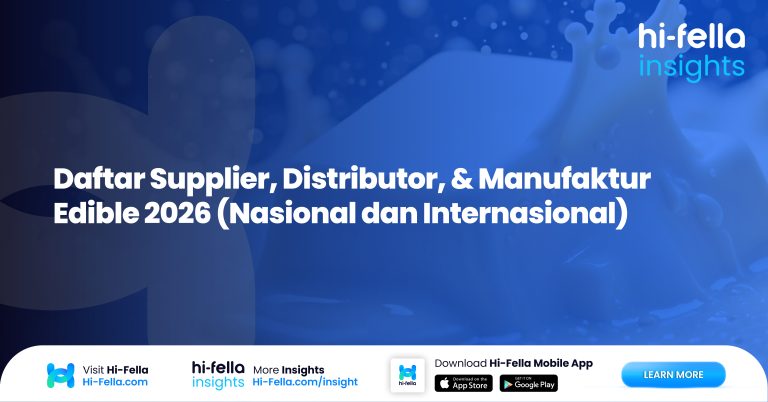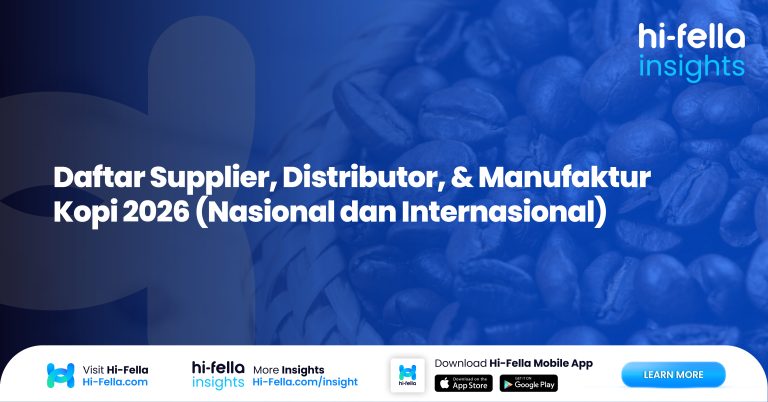As we approach 2025, the demand for specialty foods is expected to soar globally, driven by changing consumer preferences and a greater emphasis on sustainability, health, and authenticity. In this evolving landscape, Indonesia, with its rich agricultural heritage and diverse food culture, is well-positioned to become a significant player in the global specialty food market. The country offers unique commodities like coffee, cocoa, spices, and plant-based ingredients that resonate with the growing global appetite for ethical, organic, and authentic food products.
This article delves into the global trends shaping the specialty food market, Indonesia’s unique strengths, the challenges local brands face in scaling globally, and how strategic partnerships and digital platforms are helping local food brands succeed internationally.

Table of Contents
The Global Demand for Specialty Food in 2025
The global specialty food market is undergoing a dramatic expansion, with increasing demand for products that cater to specific dietary needs, cultural preferences, and ethical concerns. In 2025, trends such as halal, organic, plant-based, and sustainable products are expected to drive the market’s growth. Consumer behavior has shifted in the post-pandemic world, with more people seeking healthier and more sustainable options in their food choices.
Data from Global Food Trade Reports
According to global food trade reports, the specialty food market is projected to grow by 8% annually, with notable spikes in demand for plant-based foods, organic produce, and sustainable packaging. The demand for halal foods is also on the rise, driven by the growing Muslim population worldwide. The market for organic food has seen a consistent increase, with consumers becoming more aware of the environmental impact of their food choices and preferring products free from pesticides and chemicals.
Emerging markets, particularly in Asia, Africa, and Latin America, are playing a significant role in reshaping global food supply chains. With growing middle-class populations and increased access to global trade, these regions are becoming key consumers of specialty food products. Moreover, these markets are not only increasing their consumption of these products but are also playing an important role in shifting production and sourcing practices globally. This transformation creates opportunities for countries like Indonesia, which possess the right blend of agricultural products and expertise to cater to these growing markets.
Consumer Behaviour Shifts Post-Pandemic
The COVID-19 pandemic brought about significant changes in how people view food. There has been a clear shift towards food products that offer both health benefits and ethical production processes. Consumers now prefer products that promote immune health, sustainability, and traceability, reflecting a broader demand for clean label products. This has accelerated the adoption of organic, fair trade, and plant-based products in many markets, providing a massive opportunity for Indonesian brands to capitalize on this growing demand.
Indonesia’s Unique Strength in Local Commodities
Indonesia, known for its abundant natural resources, has long been a global supplier of high-quality agricultural products. The country’s diverse climate and fertile lands make it an ideal producer of coffee, cocoa, spices, coconut products, and plant-based ingredients, all of which are highly sought after in international markets.
Indonesia’s Export Strength
Indonesia is one of the world’s largest producers of coffee, cocoa, and spices, with a long history of cultivation and export. These products, particularly Sumatran coffee, Javanese cocoa, and Balinese spices, are known for their distinctive flavors and are highly valued in the global specialty food market. The country’s coconut products, including coconut milk, oil, and desiccated coconut, are also widely used in food manufacturing globally, especially in plant-based food products.
Case Studies of Successful Indonesian Food Brands
Several Indonesian food brands have successfully made their mark in international markets, tapping into the growing demand for authentic, sustainable products. Indofood, one of Indonesia’s largest food companies, has leveraged its expertise in producing high-quality snacks, noodles, and beverages, expanding its presence in Southeast Asia, the Middle East, and beyond. Similarly, Kapal Api, known for its coffee products, has seen significant growth in the global market by emphasizing the quality and authenticity of its offerings.
The Indonesian government, through initiatives like Making Indonesia 4.0, has encouraged the development of the food industry by supporting export promotion programs and providing assistance to businesses aiming to expand internationally. These initiatives aim to enhance the country’s competitiveness in the global specialty food market.
Sustainability and Certifications
As global markets demand higher sustainability standards, Indonesian food producers are increasingly adopting certifications such as Fair Trade, Rainforest Alliance, and RSPO (Roundtable on Sustainable Palm Oil). These certifications help Indonesian brands meet international sustainability expectations and differentiate themselves in global markets. Indonesian coffee and cocoa producers are also working towards organic certifications, tapping into the growing market for organic products in Europe, the US, and Asia.
Challenges and Opportunities in Scaling Local Brands Globally
While Indonesia is well-positioned to take advantage of the growing global demand for specialty foods, there are several challenges to scaling local food brands internationally. These include issues related to quality consistency, certifications, packaging innovation, and logistics. However, with the right strategies and tools, these challenges present significant opportunities for growth.
Barriers to Scaling Internationally
One of the primary barriers for Indonesian food brands in scaling internationally is quality consistency. Maintaining the same high standards across various production batches is essential for global consumers, and Indonesian food producers must ensure that their products meet international food safety and quality standards. This is particularly important in markets like the EU and the US, where food safety regulations are stringent.
Certification Challenges
Obtaining international certifications like organic, halal, and fair trade can be a long and costly process for small and medium-sized Indonesian businesses. However, these certifications are crucial in ensuring access to certain markets, particularly in regions where consumers prioritize ethical and sustainable products.
Packaging Innovation and Logistics
Packaging is another key area where Indonesian food brands need to innovate. As consumers become more environmentally conscious, they are increasingly looking for products with sustainable packaging. Moreover, ensuring that products can be transported efficiently without compromising quality is a significant logistical challenge, especially for perishable items like spices and coffee.
Opportunities in E-Commerce and Trade Fairs
Despite these challenges, there are several opportunities for Indonesian brands to expand globally. E-commerce exports are growing rapidly, particularly in markets like the US and Europe, where consumers increasingly turn to online platforms to purchase specialty foods. Participating in international trade fairs like SIAL, Anuga, and Gulfood offers Indonesian brands the chance to showcase their products to a global audience, forge partnerships, and explore new markets.
Strategic Partnerships and Digitalization in Food Exports
The digital transformation of the food export sector has opened up new avenues for local brands to reach global buyers. Technology and digital platforms are reshaping the way food businesses connect, collaborate, and scale internationally.
Blockchain for Food Traceability
One of the most promising innovations is the use of blockchain technology for food traceability. Blockchain can ensure the integrity and transparency of food supply chains by allowing consumers to trace the origin of their products from farm to table. This is particularly relevant for Indonesian food brands, as consumers globally are increasingly interested in knowing the story behind their food.
AI for Demand Forecasting
Artificial intelligence (AI) is also playing a crucial role in demand forecasting, helping Indonesian food businesses predict consumer trends and adjust production accordingly. By using AI-driven insights, local brands can better manage inventory, optimize production processes, and meet global demand efficiently.
Global Partnerships for Brand Visibility
Strategic global partnerships are essential for boosting brand visibility and accelerating growth. Indonesian brands can leverage international networks and distribution channels to expand their reach. By forming partnerships with international distributors, food retailers, and e-commerce platforms, Indonesian brands can tap into new markets and increase their global presence.
Join Hi-Fella to Connect with Suppliers and Buyers Around the World
For businesses looking to scale their food brands internationally, Hi-Fella provides an invaluable platform for connecting with global buyers, suppliers, and investors. Hi-Fella’s network helps Indonesian food producers find verified partners, expand into new markets, and participate in knowledge-sharing opportunities. With its global reach and focus on sustainability, Hi-Fella is the perfect platform to help local brands navigate the complexities of international trade and succeed in the global specialty food market.
As the demand for sustainable, ethical, and authentic food products grows worldwide, Indonesian brands have a unique opportunity to take their place in the global food supply chain. By joining Hi-Fella, businesses can connect with key players in the food industry, expand their network, and explore trade opportunities that accelerate their global growth. Ready to take your food brand to the world? Let Hi-Fella lead the way.








